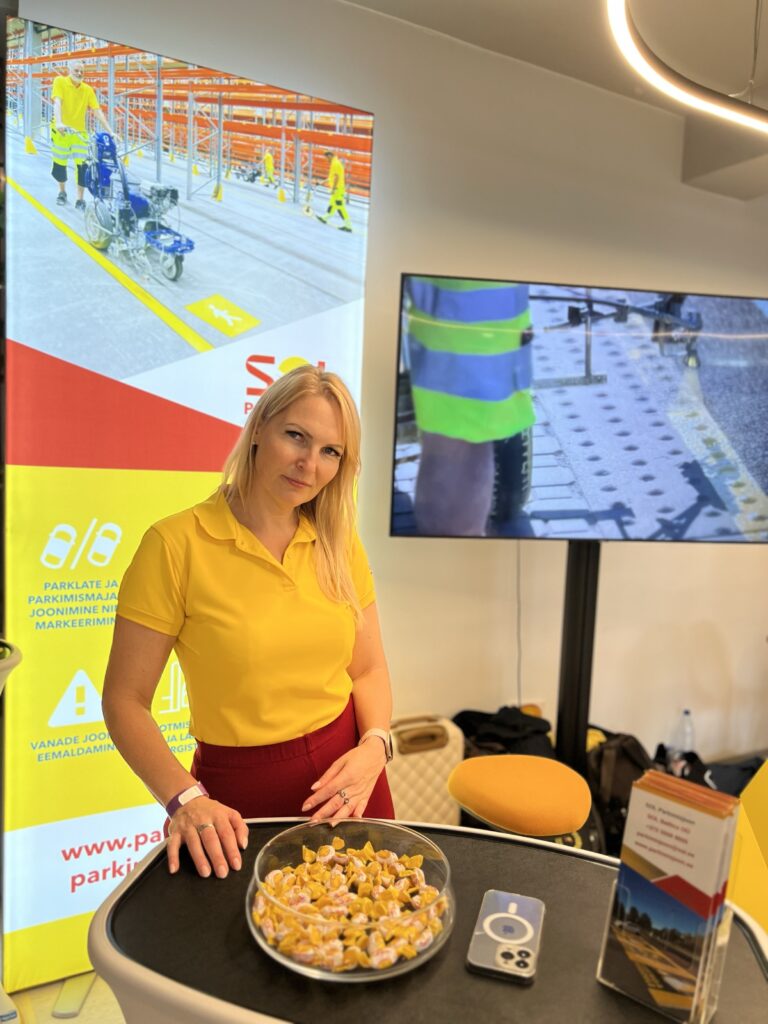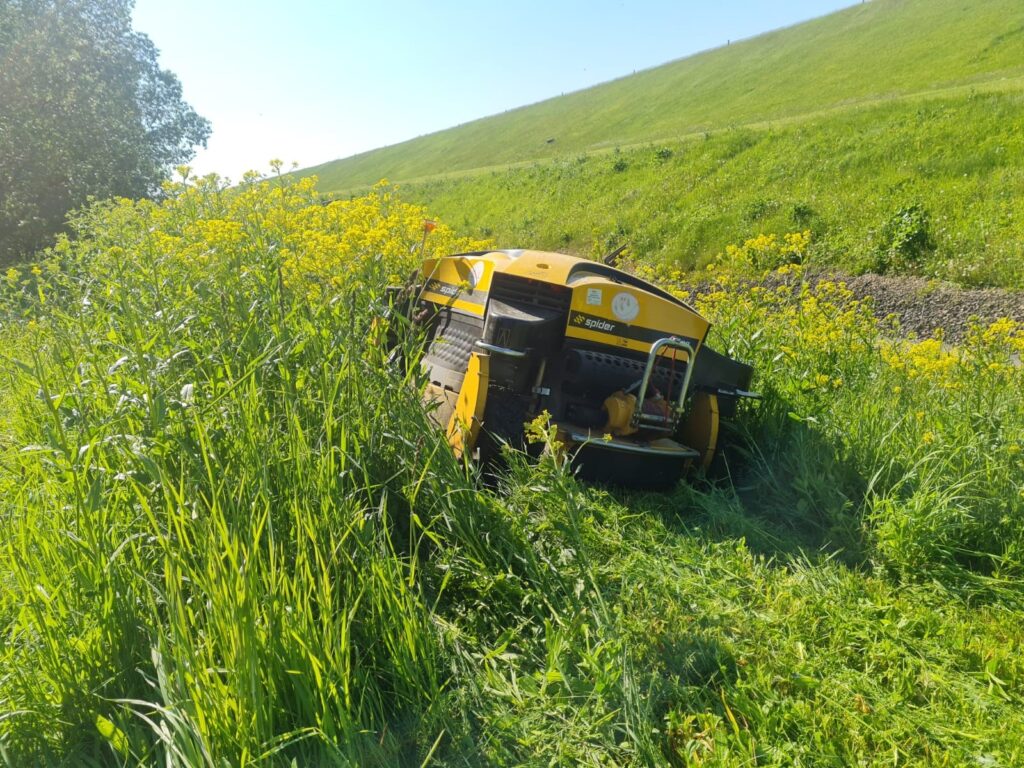Eight strategies for staying competitive in property maintenance
24. October 2023
While robots will become profitable in just a couple of years, the industry still requires more people for the next 5-10 years. Alongside the increasing significance of artificial intelligence, there is a sharp rise in the need for service design, energy efficiency and sustainability. SOL Baltics Sales and Marketing Director in the Baltics, Mergit Inno, provided answers to three questions for the kinnisvarauudised.ee website, offering insights into the future of property maintenance and management and outlining eight indispensable strategies for success in the industry.
From a broader perspective, how will the property maintenance and management industry develop in the coming years? What will the share of maintenance be compared to management? Will the fields be distanced from each other or become more unified?

Answers were provided to the kinnisvarauudised.ee website by SOL Baltics Sales and Marketing Director in the Baltics Mergit Inno.
Let’s involve a third party here, such as a developer or architect. When the developer is motivated to build houses that are easier to maintain, the need for both management and maintenance decreases. For example, we are frequently asked why we don’t use cleaning robots more widely. There are two reasons. One is that the cost of the workforce in Estonia is lower than, for example, in Denmark, but the price of cleaning robots is the same in both places.
The second reason is that our buildings are not equipped to accommodate robots. Robot maintenance has not been factored into the room planning. Robots are frequently impeded by door thresholds, small and “mute” elevators that lack communication abilities with robots, as well as non-standard cleaning rooms that the robots cannot access for recharging etc.
We expect the wage difference to decrease in the coming years, making the use of robots financially viable within two to three years. Right now, buildings are constructed to last decades, which is why we haven’t been able to employ robots in them efficiently.
Strategies in the coming years to remain competitive in the industry:
- Service providers must increase their workforce capabilities, as the focus shifts from activity-based to result-based work.
- It is important to promote lifelong learning for both workers and managers and to tailor work roles to suit the workers.
- Companies that can stay a step ahead of market expectations, make use of technological solutions to the fullest and invest in the future are the ones that will achieve success.
- Sustainability is here to stay and it is influencing future investments for companies. For instance, at the Berlin Cleaning Management Services trade fair in September, the majority of the exhibitions were centred around the green transition and technological solutions.
- There is a demand for energy efficiency, minimal CO2 footprint and reduced expenses. This requires a smart customer who is willing to adjust their consumption habits and actively involves tenants in the process.
- One of the biggest challenges has proven to be changing established habits and mindsets of the people working in already existing buildings. It is easier to purchase services in the same manner it’s always been done, year after year. Successful management companies assist their clients in finding solutions based on their specific needs, enabling the management companies to use their resources efficiently. For instance, in Estonia, most buildings are cleaned during off-hours, which incurs additional electricity costs. Why can’t this be done during the day, when there is natural sunlight or when there is already activity in the buildings? It’s just because of habit! In gyms, we always see cleaners present. We even expect them to be there.
- The future customer will choose a company whose team makes well-considered decisions and can provide effective supervision for their work as their maintenance or management partner.
- The customer will prefer management and maintenance companies not to be under a single firm, as this can lead to conflicts of interest.
The Labour Market 2035 study suggests that within a few years, the first robot caretakers should enter into service. This will primarily affect the field of medicine. Are similar advancements in the workforce expected in the field of property maintenance and management? What kinds of changes will this bring?

In property maintenance, mowing robots and robot vacuum cleaners are already being used to great effect.
I already mentioned robots in my previous response, but I will add that in the field of property maintenance, mowing robots and robot vacuum cleaners are already being utilized very successfully. We have been using them for years. The primary concern with indoor cleaning robots at present is that houses are not yet designed with them in mind. By this, I’m not just referring to floor cleaning, but also to sanitary facilities and window cleaning robots. They cannot be used in certain buildings due to structural properties that simply do not allow it.
It’s important to remember that technological advancements require not only structural changes but also communication, connections and a functional WiFi network. A high-tech device can raise additional questions from the client regarding the data it receives and transmits (such as GPS, cameras, sensors, etc.). The developer should be involved by the management company right from the project and construction phases of the building. With these new solutions, it is also important for the producer to receive valuable feedback from real-world use, to understand how the device performs. Therefore, testing and a certain level of patience should be emphasised here, which requires the end-user to be flexible and quick to adapt to changes. We already spoke of the costs in the previous answer.
According to SOL, companies that do not value their workers will lose future prospects. Robots have come to stay. This presents a huge challenge in the workforce, as the typical cleaning worker today may not be best suited to oversee robots. To address this, a new job profile must be created, with a salary comparable to that of a technician, or an average two to three times higher than the salary of a cleaning worker today.
How would you define the terms cleaner, technician, operator, service designer, user experience, environment design, tech company, artificial intelligence and visionary in the context of property maintenance and management for the next five years?
With the advancement of technology, data analysis and making managerial decisions based on information will become more prevalent. The smarter houses become by incorporating technologies such as robots, the greater the demand for additional specialists. Expectations will rise for technical maintenance teams in maintenance and management companies. Robots require installation, testing, maintenance, repairs, etc., which in turn necessitates the creation of new jobs and training programs. The future will reveal the names we will give to these roles. It is clear that embracing change and promoting lifelong learning will be a crucial responsibility for entrepreneurs.
Increasing competition will call for a greater need to explore internal resources than before. As mentioned earlier, a typical cleaner with today’s qualifications will not start doing this type of work. It is pointless to fear complete human replacement in this profession. On the contrary, in the next five to ten years, we will require more personnel, as the work will take place through parallel systems. On the one hand, you will have those engaged in traditional work, and on the other hand, there will be those involved in testing robots, developing buildings and teaching. A greater emphasis will be placed on creating environmentally friendly and well-thought-out solutions in both new and existing buildings.
There will be an increased demand for service design and energy efficiency. Cooperation between building owners and service providers to identify and address real issues will be extremely important. The emphasis lies once again on the reason behind an order or a plan. This is where property maintenance and management companies will play a crucial role – someone will need to assist in finding these solutions, as continuing in the old way is neither possible nor sustainable.
Link to the original article: https://www.kinnisvarauudised.ee/uudised/2023/09/29/inno-8-muutustm-et-kinnisvarahalduses-ellu-jaada.